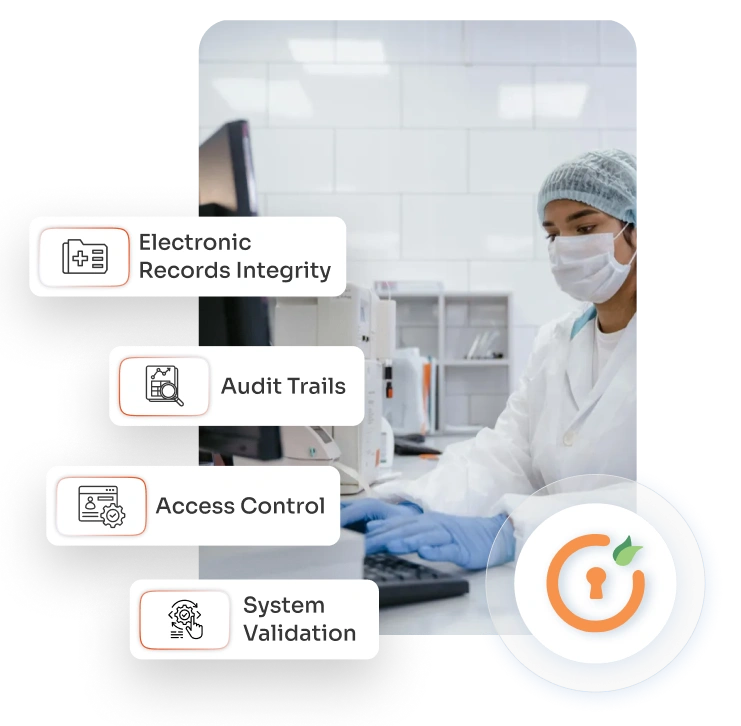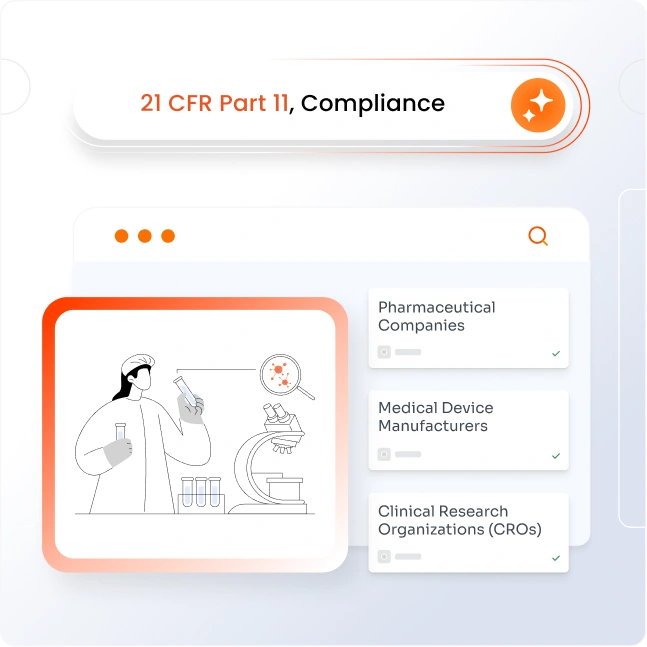Need Help? We are right here!
Search Results:
×The 21 CFR regulations refer to a set of rules established by the U.S. Food and Drug Administration (FDA), specifically under Title 21 of the Code of Federal Regulations. These regulations govern the use of electronic records and signatures in industries such as pharmaceuticals, biotechnology, and medical devices. The primary purpose of 21 CFR, specifically Part 11, is to ensure that electronic records are secure, reliable, and audit-ready for FDA review when needed.
These regulations mandate strict standards for data integrity, access control, and audit trails, making it critical for companies to implement secure, compliant systems for managing their records. 21 CFR regulations are crucial for ensuring that electronic data is treated with the same level of trust and authenticity as paper records and handwritten signatures in regulated industries.
To comply with 21 CFR Part 11, organizations must maintain the integrity, security, and traceability of all electronic records and signatures. Here’s what’s required:
Organizations must ensure that all electronic records are accurate, complete, and consistently maintained. The system must prevent unauthorized changes, ensuring data reliability and consistency.
Compliance requires maintaining a detailed audit trail of all changes made to records. This trail must capture essential information such as who made the changes, when, and what modifications were made.
Access to electronic records must be tightly controlled to prevent unauthorized personnel from altering or viewing sensitive data. Systems must include secure user authentication and role-based access controls.
The electronic systems used to manage records must be validated to confirm they function as intended and remain reliable throughout their lifecycle.

If your organization manages regulated data in pharmaceuticals, biotechnology, life sciences, or medical devices, you must comply with 21 CFR Part 11 requirements for electronic records and signatures.
The key stakeholders who must comply include:
These regulations ensure that the systems used in these industries are secure, validated, and audit-ready for FDA inspections.

Failure to comply with 21 CFR Part 11 can lead to severe legal, financial, and reputational damage, including:
miniOrange helps you manage who can access and modify your data. With role-based access and multi-factor authentication (MFA), you can make sure only authorized people can make changes.
We prevent downloads, uploads, and sharing across different channels to keep your data safe. This ensures that sensitive information remains secure and complies with all the FDA requirements.
miniOrange tracks when users access data, manages sessions, and records when security policies are breached. This creates a clear audit trail to help you stay prepared for the FDA audits.
Years of Experience
Customers Worldwide
Customer Support
Cost Saved